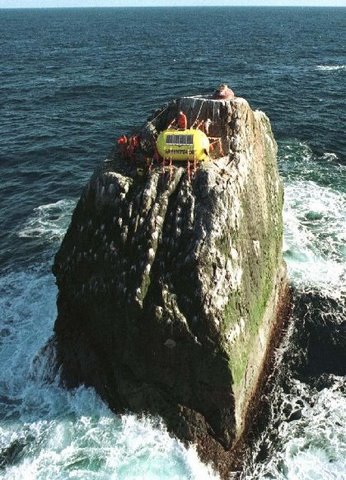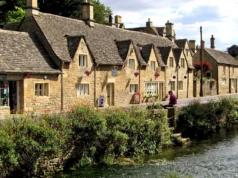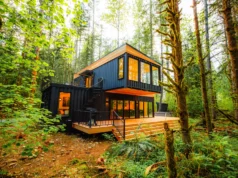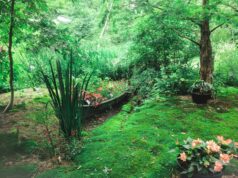Got a problem with your country? Why not form one of your very own, with laws you choose yourself?
A micronation is a tiny, self-proclaimed sovereign state. Though they claim sovereignty and are often not interfered with by larger government entities, they are not recognized as official independent states (which sets them apart from microstates like The Vatican or Singapore.) There are any number of reasons someone may start a micronation: as a joke, as a form of art, for protest purposes, as a political or legal experiment, or even to conduct criminal activity. Often times a strange legal quirk (or outright loophole) gives these micronations a unique legal status. Some of them are hilarious. Some of them are interesting. Most of them are, in their own way, bizarre, unique, and strange.
1.
Principality of Sealand
Size: 0.00055 km2 Population: 27 (2002 estimate) Ruler: Michael Bates
Sealand is probably the world’s most well known micronation, and this is probably because the stories behind it are bizarre and truly intriguing. The site of Sealand is about 10 km off the coast of England, and was originally a World War II sea fort designed to deter German air raids. In 1967, Paddy Roy Bates occupied the sea fort (then called Knock John) and used it to run an off-shore pirate radio station. He and his family have claimed it as an independent sovereign nation, including issuing passports. Bates claimed that the nation was granted de facto statehood when Germany sent a diplomat there, and a 1968 UK court ruling stated that because of its location in international waters, it is outside of British jurisdiction. This is connected to what is perhaps the most fascinating event in Sealand’s history, which took place in 1978. While Bates was away, Alexander Achenbach, who refers to himself as the Prime Minister of Sealand, along with several German and Dutch compatriots, staged an armed takeover of the facility. They held Bates’s son, Michael, hostage for several days, later releasing him in the Netherlands. Bates enlisted armed help to aid him in recapturing Sealand, and raided it from helicopters. He held Achenbach and the others as prisoners of war, and while the others were released, Achenbach was not. Since he held a Sealand passport, he was charged with treason against the micronation and was held unless he paid a hefty fine. When the British government would not help, Germany sent a diplomat to negotiate his release. From time to time, rather extreme things like this have happened at Sealand, including an instance in 1990 in which a British ship was fired upon with rifles from Sealand for passing too close and “invading Sealand territory”. It was notably in the news once more in 2007, when torrenting gurus The Pirate Bay attempted to buy it in reaction to harsher copyright restrictions in Sweden, its homebase.
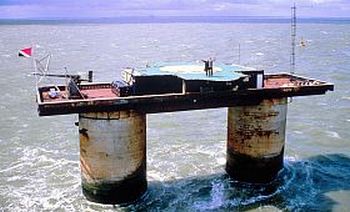
2.
Republic of Molossia
Size: 58 km2 Population: 2-3 Ruler: President Kevin Baugh
Molossia is headquartered just outside of Dayton, Nevada, and consists of President Kevin Baugh’s home, back and front yards, and two properties he purchased in Pennsylvania and California. He styles himself after a dictator, right down to the military uniform and big sunglasses, and his micronation has been described as “a hobby taken to the nth degree.” He also claims a spot in the Pacific Ocean and 49,881 square miles on Venus. Molossia pays taxes to the United States, but officially labels this as “foreign aid”. A variety of bizarre things are banned in Molossia, including: guns, walruses, catfish, onions (and onion-like vegetables), and anything from Texas except pop star Kelly Clarkson.
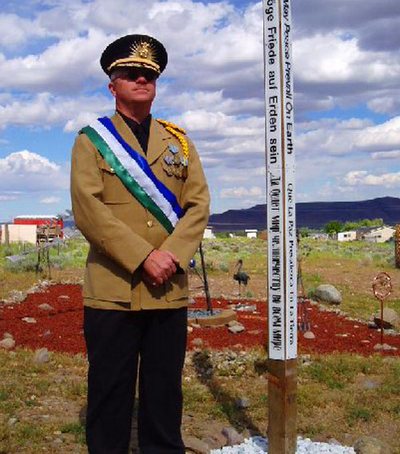
3.
Principality of Hutt River
Size: 75 Km2 Population: Around 20 residents and 13,000-18,000 overseas citizens Ruler: His Royal Highness Prince Leonard I
The Principality of Hutt River (formerly Hutt River Province) was founded by Leonard Casley in 1970. The micronation was formed when the five families owning farms in the Hutt River area became involved in a legal dispute with the government of Western Australia over wheat farming quotas. Essentially, the families had produced an amount of wheat that greatly exceeded what they were told they could legally sell under a new law (1,000 times the allowed amount, in the case of Casley himself). In correspondence with the Governor, Casley was addressed as “The Administrator of the Hutt River Province”, legally entitling him to that title. He changed his title to “His Royal Highness Prince Leonard I” to take advantage of an old law stating that anyone interfering with a royal could be held for treason, and used this to justify seceding from Australia. In 1976, Australia Post stopped handling mail for the micronation, and repeated demands were made that the residents of Hutt River Province pay Australian taxes. Casley declared war on Australia as a result, and the mail began to run again (and the tax notices stopped coming.)
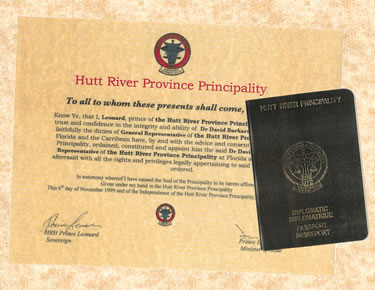
Link
4.
Other World Kingdom
Size: 0.02 km2 Population: Varies Ruler: Her Royal Majesty Queen Patricia I
The Other World Kingdom is what happens when a BDSM and femdom resort in the Czech Republic declares itself a sovereign nation. It is a matriarchy, meaning that men are ruled by women, and below the queen (who is an absolute monarch) a various levels of nobility for women. The OWK’s stated purpose is to “get as many male creatures under the unlimited rule of Superior Women on as much territory as possible.” There are multiples classes for men as well, the lowest being slaves, who are stated to be “on the level of a normal farm animal.” The site, while small, consists of several buildings and outdoor areas, including multiple torture chambers. It retains its own passports, currency, police force, state flag, banners, and national anthem. I bet they even have their own logo pens.
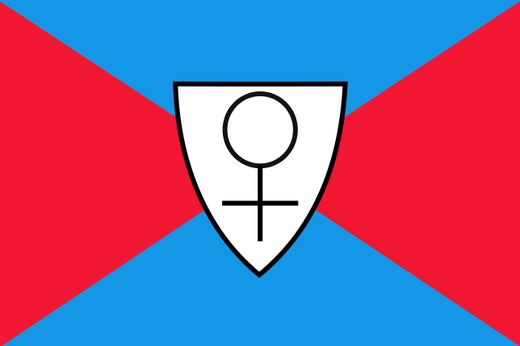
5.
Waveland
Size: 784 km2 Population: 0 Ruler: Greenpeace
The geographical site of Waveland is more properly referred to as Rockall, a rocky, uninhabited island near the United Kingdom. Its ownership is disputed by the United Kingdom, Iceland, Ireland, and Denmark. In 1997, the environmentalist organization Greenpeace briefly occupied the island in order to protest oil drilling in the area, declaring it the sovereign new state of Waveland, and offered citizenship to anyone who would take their pledge of allegiance. Since the United Kingdom claims it as its own territory, and since Greenpeace is free to move and operate in the United Kingdom, the UK government had no problem with Greenpeace’s actions and, for the most part, simply ignored them. The protest continued until 1999, when the organization financially backing the project went under. Now, all that remains is a solar-powered beacon to help ships avoid hitting the island.
